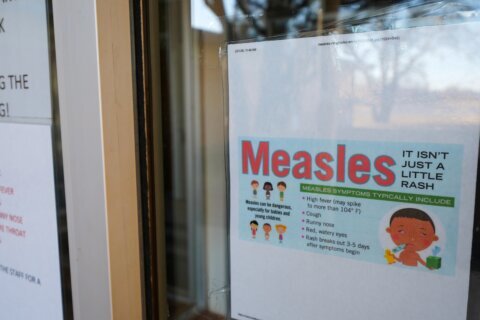An aggressive push to inspect 686 apartment buildings in Montgomery County, Maryland, resulted 31,000 code violations, officials announced Thursday.
The two-year initiative, which wrapped up this week, was the first time the county inspected so many buildings in such a short period of time.
More than 22,000 apartment units were included in the inspection. Of the 31,000 code violations, 96% of them have since been addressed.
“This is a big step forward for the county,” said County Executive Mark Elrich.
While nearly two-thirds of the inspected buildings were found to be in compliance with county standards, 112 were labeled “at risk” and 130 were “troubled,” which is considered the worst rating. All apartments and their classifications are posted on the county’s “trouble properties list.”
Although a majority of the violations were corrected, the county conducted several re-inspections and discovered that some issues were not fixed, which resulted in an additional 309 citations.
The county also found 188 apartment units with mold. The county gave landlords anywhere from 24 hours to two weeks to fix mold problems, based on the severity of the issue.
Elrich said the county will continue to put an emphasis on noncode compliant buildings. Buildings labeled “troubled” will see the most attention, with more frequent inspections in a larger percentage of apartments in each complex.
The initiative was part of a tenants rights bill approved by the county council shortly after a deadly explosion at the Flower Branch Apartments in Silver Spring in 2016, which left seven people dead. Saturday marks the third anniversary of the explosion.
“The bill, frankly, got the attention it needed after that tragedy, and I wish it hadn’t happened that way,” Elrich said.
Elrich said his hope is that the threat of inspections and fines will deter landlords from overlooking maintenance issues in their buildings.
“This is our opportunity to make sure that residents in Montgomery County get treated fairly, that they get [the] housing they deserve to have,” said Elrich.








